Observatorio tecnológico del 10 al 16 de febrero
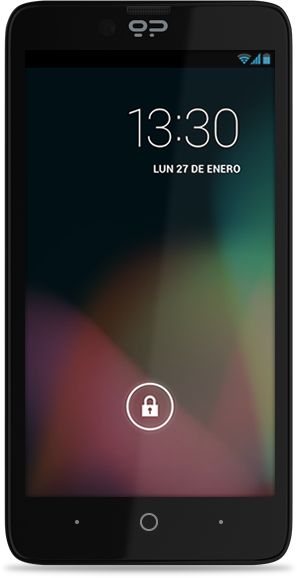
Last Tuesday, February 11, saw the new GeeksPhone Revolution kick off with the announcement of pricing and availability details. The principal attraction of this GeeksPhone terminal is that several operating systems can be installed without affecting the validity of the warranty. How? Because the terminal comes with a Dual-Core Intel Atom processor (Z2560 up to 1.6 Ghz) set by default to Android but that lets you install Firefox OS and any other Linux-supported systems, such as Ubuntu Phone. The other specifications are more run-of-the-mill, for the most part tending toward the mid-range or low end. For instance, it has a 4.7 inch IPS screen with a resolution of 960x540 pixels, but its internal memory is just 4 GB, expandable with microSD cards. The RAM memory is 1 GB, while the cameras—and don't expect too much of them—offer 8 and 1.3 Mpx. The 2000 mAh battery also looks set to be another weak point. What's more, it's not an LTE terminal. The GeeksPhone Revolution is due to be released on February 20, a few days ahead of MWC 2014, and will retail at 289 euros.
We knew that HTC was going through difficult times, and now the company widely respected and admired for the hardware of its products has announced that in 2014 it will focus on developing cheaper smartphones, a decision that has worked wonders for other manufacturers. HTC co-founder Cher Wang told Reuters that they will be making devices for the 150 to 300 dollar range. In 2013 the company concentrated exclusively on its "flagship” One family, a decision it now views as a mistake. Other manufacturers respected for their hardware have released low-cost products with excellent results. Think Motorola with its Moto G or Nokia with the Lumia 520. Both devices have demonstrated the type of value for money that will have all the other manufacturers scrambling to equal, if not better, it. What they have said, however, is that they are not going to target the "low end" and compete with brands like Xiaomi or Huawei. They also need to come up with a plan for their mid-range / high-end smartphones. The HTC One has been one of the best Android terminals on the market, but it's very difficult to compete with the enhanced support and much lower price of the Nexus range.

Telefónica has had a bad start to the week. The Comisión Nacional de los Mercados y la Competencia (Spain's Competition and Markets Authority) has fined the company for two "very serious" breaches, to the tune of €250,000 each. The first fine is for not giving due notice of the Movistar ADSL and Movistar Family TV over ADSL deals before offering them to customers. Telefónica was supposed to notify the authority of the prices and conditions of its new services at least one month before their launch (to guarantee a level playing field for all telecommunications operators), but failed to do so for the aforementioned special deals. But that's not the only fine Alierta's company will have to pay: it will also have to cough up another €250,000 for preventing access to 11 premium SMS numbers run by the telecoms operator NVIA. While waiting for a conflict with NVIA to be resolved, Telefónica was ordered to restore access to 26 premium SMS numbers but only did so for 15 numbers. All in all, therefore, Telefónica is faced with a penalty of half a million euros.
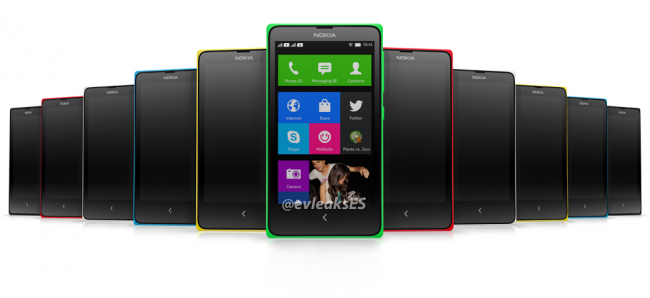
There's been a great deal of speculation about the already famous Nokia Normandy from the Finnish manufacturer, which for the first time ever will be based on Android and, according to The Wall Street Journal, is set to reach the shelves this very month. Leaks about the device have proliferated in the last few weeks, from that very first rumor to the early inklings about Android support and reports about its use of Android 4.4. KitKat. Now it looks like all that is about to be confirmed officially. Or so the Journal would have us believe, quoting sources close to Nokia who reveal that engineers at the Finnish plant started working on the terminal when Microsoft closed the deal to acquire a majority share in the company. But although the Nokia Normandy will be Android-based, it won't use the entire platform—the same sources say users won't be able to access Google Play—and will feature Nokia's own app store (on the same lines as Amazon) as well as blocking various tools like Maps to include HERE Maps, for instance. It seems the terminal will be targeted initially at emerging markets, but it will be interesting to see how the market reacts and whether Nokia will do the same in the future by bringing out more devices to promote Nokia services, but for Android this time.
The smartwatch fever seems to be spreading. The latest manufacturer to fall prey to the attractions of these types of devices is Huawei, which according to The Wall Street Journal will unveil its smartwatch at the Mobile World Congress in Barcelona.
Furthermore, the financial daily says this announcement will be accompanied by two new tablets and a new smartphone—the Huawei Ascend P7—though it seems the manufacturer is reserving the launch of its high-end range for later on. However, it clearly can't wait to present its own device in the smartwatch segment, which no manufacturer has completely managed to conquer as yet—neither Sony with a new version of its SmartWatch 2, nor Samsung with its Galaxy Gear and Pebble. There's been a lot of talk about imminent announcements by other manufacturers like Google and Apple, but it looks like Huawei might beat them to it. None of the details have been revealed yet about this new solution from the company, which according to IDC has notched up the third largest volume of smartphone sales worldwide, only outranked by Samsung and Apple, and therefore appears to have the capacity it takes to attack what is clearly an increasingly appealing market.
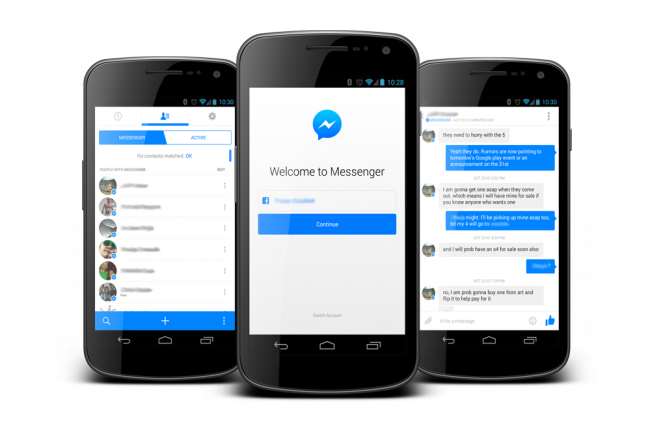
The alarms about net neutrality were first set off when AT&T unveiled Sponsored Data, a media initiative whereby companies will pay the data charges when customers use their services, unlike the current situation where these charges are billed to customers. That initiative opened the door to assigning different "priorities" to Internet traffic based on a series of factors, and now the risk seems even greater following the intentions announced by Facebook. In declarations to The Financial Times, the Vodafone CEO revealed that the company had been approached by Facebook regarding a deal to offer free access to the social network. According to Vittorio Colao, Facebook sent one of its key chiefs, Sheryl Sandberg, to talk to Vodafone about providing access to the social network at zero cost for users, even without a data contract. This is a clear attempt by the social network to expand even further into emerging markets where users are more concerned about the costs of mobile connection. The social network has tried to persuade telcos to strike a deal by arguing that the number of customers who take out data contracts will grow because free access will be limited to a specific time and many users will be tempted to sign up for a new plan when it ends. Colao seems unconvinced, stating in his declarations to the aforementioned daily that every content provider in the world would like users to be able to access its contents free of charge, but that would clearly generate expense for telecommunications operators, and his opinion that does not make for a good business model. Even so, although Vodafone has turned down a deal with Facebook, other telcos have accepted it. In fact GoSmart, the prepaid plan for the T-Mobile brand in the USA, offers all its customers who pay more than 25 dollars a month free access to Facebook and Facebook Messenger, apparently without any time or use restrictions. Meanwhile, U2opia has struck an even more curious deal, permitting certain use not only of Facebook but of Twitter and other social networks through USSD codes, which telecoms operators use to record balances and missed calls, so users don't even need to have a data contract to update their Facebook status and carry out various other actions. Facebook is clearly within its rights to ask cellphone operators to provide free access to its network, but there is no doubt whatsoever that these intentions, whether pursued by the social network or anyone else, represent a new threat to net neutrality, hitherto staunchly protected. The fact that Mark Zuckerberg, driving force of Internet.org, which aims to take access to every last corner of the world, is behind this initiative raises questions about what his motives really are. One might be forgiven for thinking that his support for Internet.org is partly about increasing the number of users for his social network.
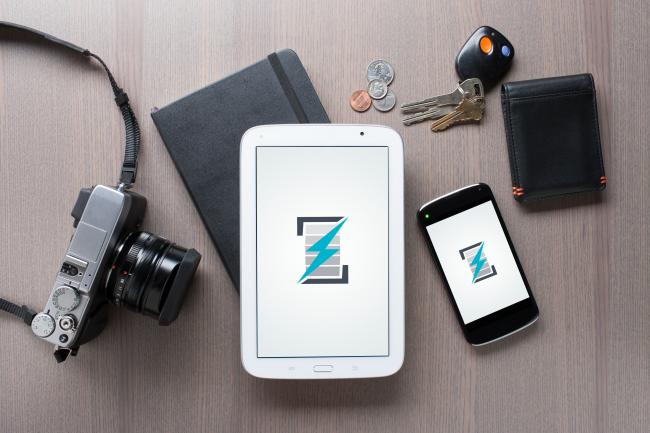
Although for the last couple of years it looked like we were finally going to see real, consistent solutions for recharging our gadgets wirelessly, not even brute force seems capable of delivering a system that everyone agrees on. Nokia has put in the most effort in this respect over the last few years with its Lumias, either via built-in capacity or accessories, but induction charging still hasn't managed to take off and win over consumers. In the map of initiatives in favor of wireless charging for everyone, the rivals of Qi, (initiative promoted by the Wireless Power Consortium) have joined forces to develop a solution to set the industry on the same course. Their course, obviously. Thus, from now on the Power Matters Alliance (PMA) and the Alliance for Wireless Power (A4WP) will march forward hand in hand. Rather than a merger as such, the two alliances will share developments to promote the global and real interoperability of their standards without renouncing their independence, but nevertheless leaving Qi on its own on the other side. In this alliance, the PMA brings its leadership in wireless charging, especially as regards the public charging systems it has already installed in selected establishments of chains like Starbucks and McDonald's—the first step for creating a network of charging points—while the A4WP brings its resonant wireless charging system, which is more flexible and powerful than the induction charging we're accustomed to seeing in our gadgets.
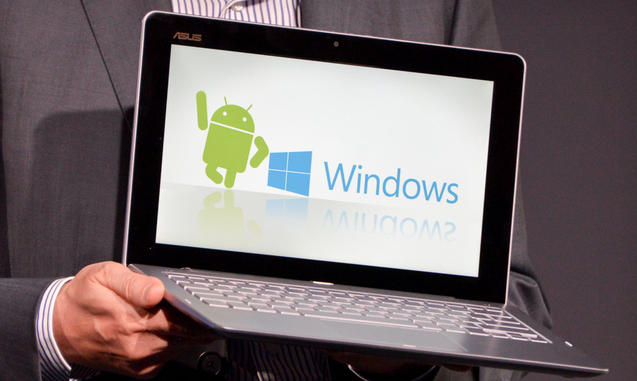
Windows Phone is one of the most interesting Android competitors and yet at the same time it never seems to really take off, principally because there aren't that many WP apps. So while the Google system manages to attract more and more developers, the only thing Microsoft can do is look on enviously. That, or create a compatibility layer for running Android apps (??!!). This shift in corporate policy is not as far-fetched as it might seem, and the appointment of Satya Nadella as the new Microsoft CEO might well be just what was needed to set the ball rolling. We're talking about the possibility of running Android apps in Windows and Windows Phone, and even distributing them through the official Microsoft store. Although the plans are at an early stage, they are sufficiently advanced to be considered a real possibility. This is not the first time we've talked about running Android apps in Windows, but on previous occasions it was just third-party companies trying to meet a demand from users. Now, though, Microsoft looks like it might want to capitalize on the popularity of Android to fill in the gaps in its own market and promote the use of its own services at the same time. This would not only attract users, who would have one excuse less for not buying a Windows Phone terminal, but developers as well, who could launch the same app in different systems without changing a single line of code. But even if this project does finally materialize, we won't see anything until at least 2015 when the next generation of Windows systems arrives (accompanied by the unification of WP and the desktop and tablet versions).
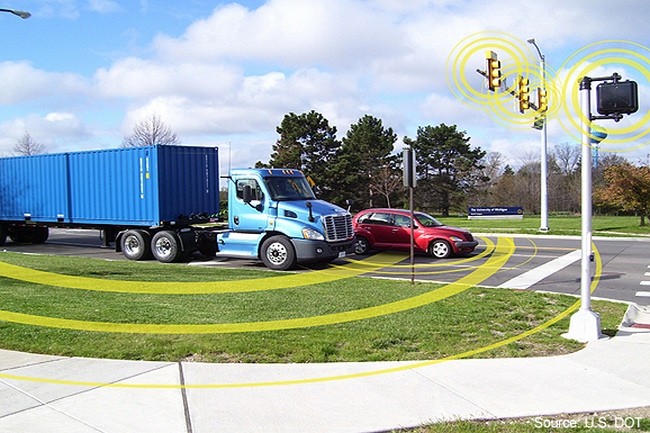
A few days ago we heard that in the United States they're debating whether connected vehicles should soon be mandatory on the roads due to the safety benefits they offer. In Europe we haven't got that far yet, although an important step was taken this month when the European Union announced that it has approved a standard for the connected cars of the future that will be compulsory in every member state. The two organizations behind the regulation are the ETSI and the CEN, which after investing more than €180 million in research projects have come up with a set of standards that vehicle manufacturers are now required to meet. So when might connected cars become the norm in Europe? They're expected to start appearing on the roads in 2015, though obviously both vehicles and roads will need to be adapted to get the full benefits of this technology.
